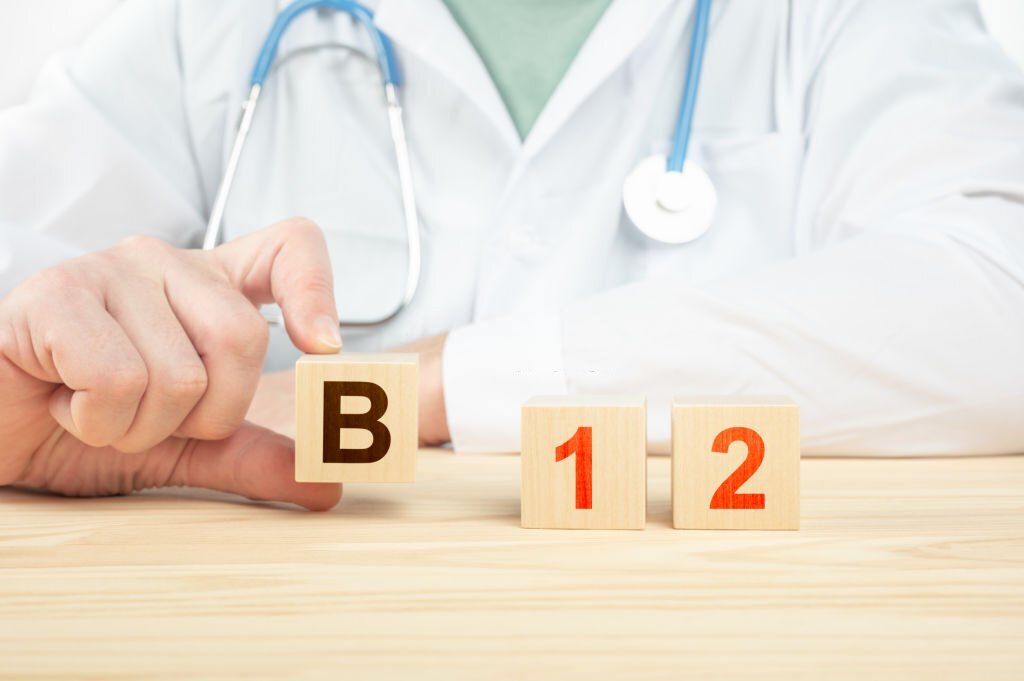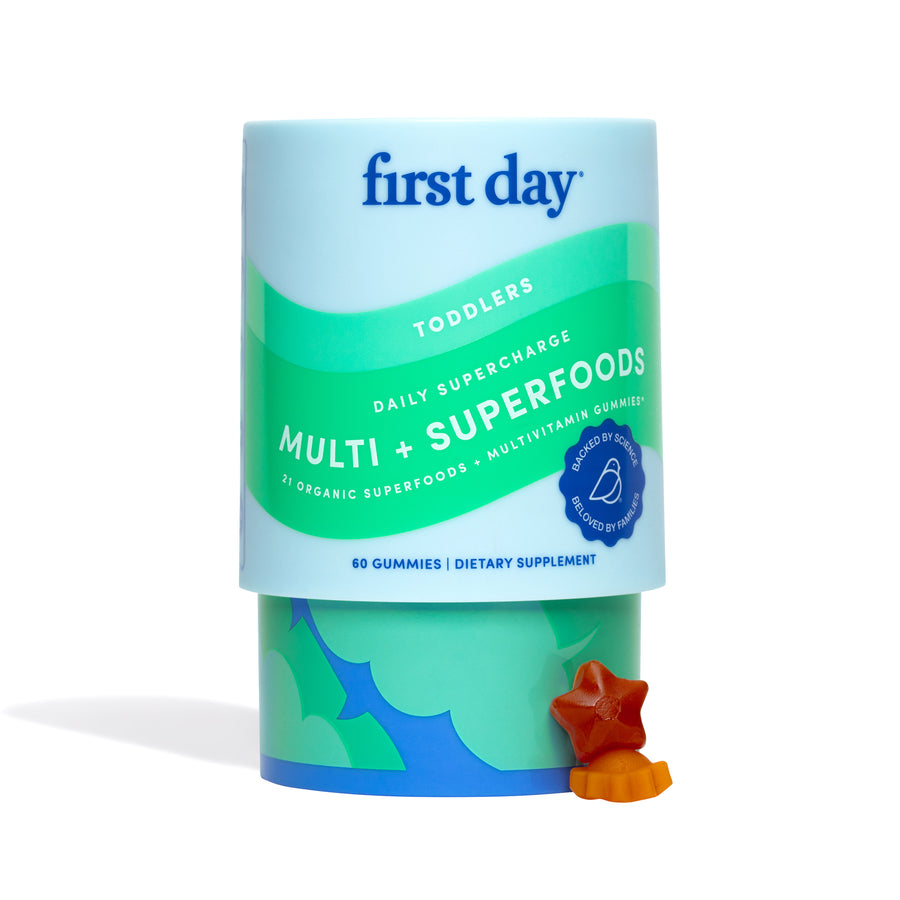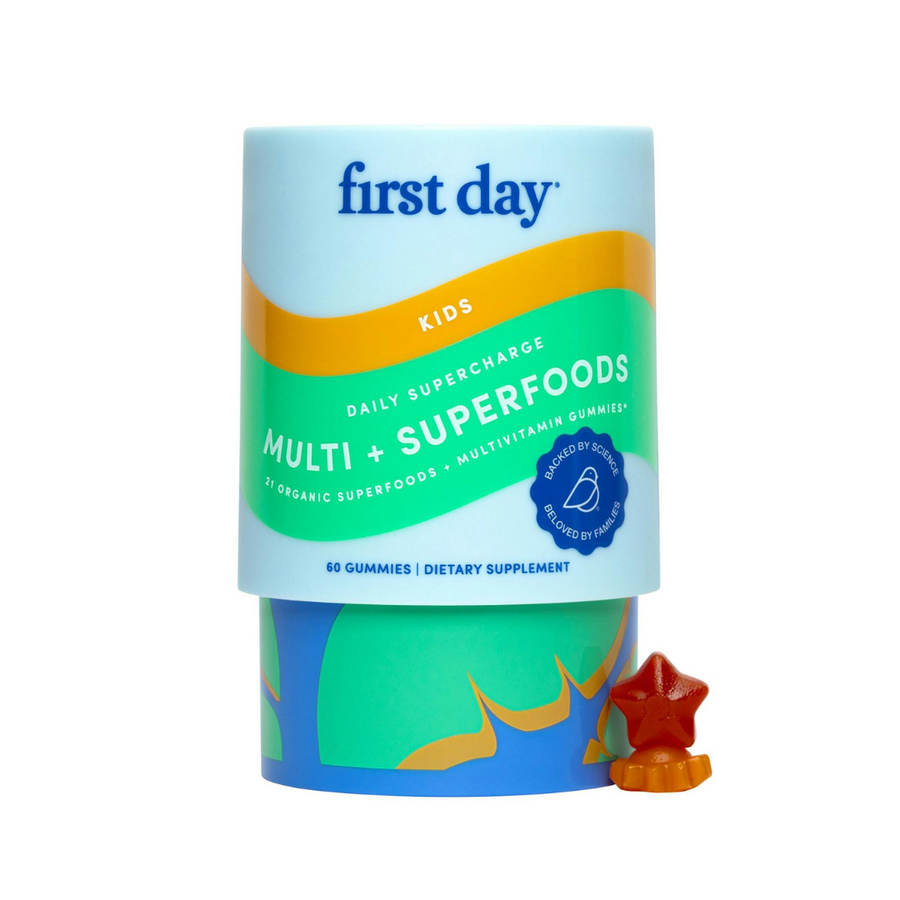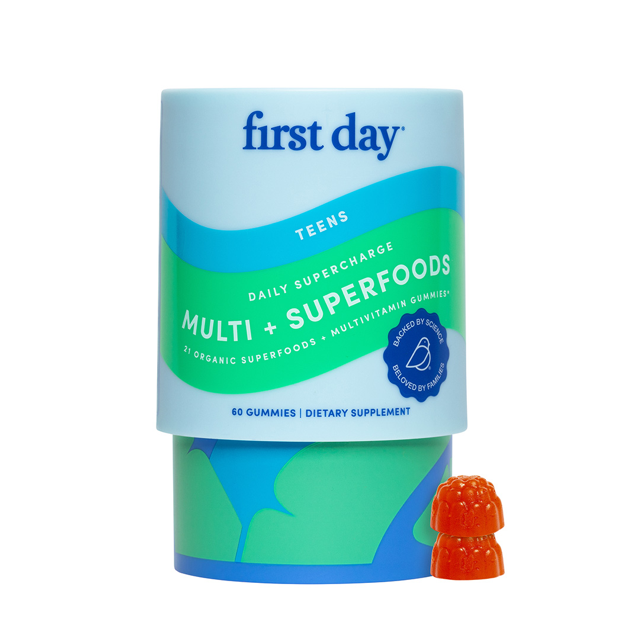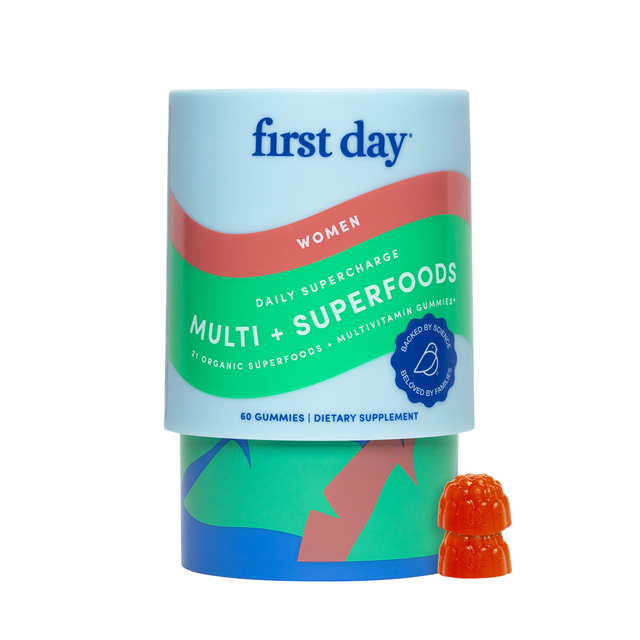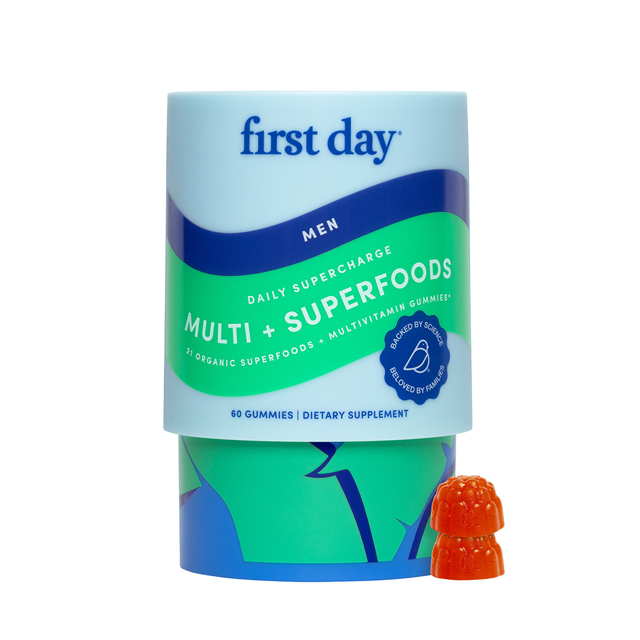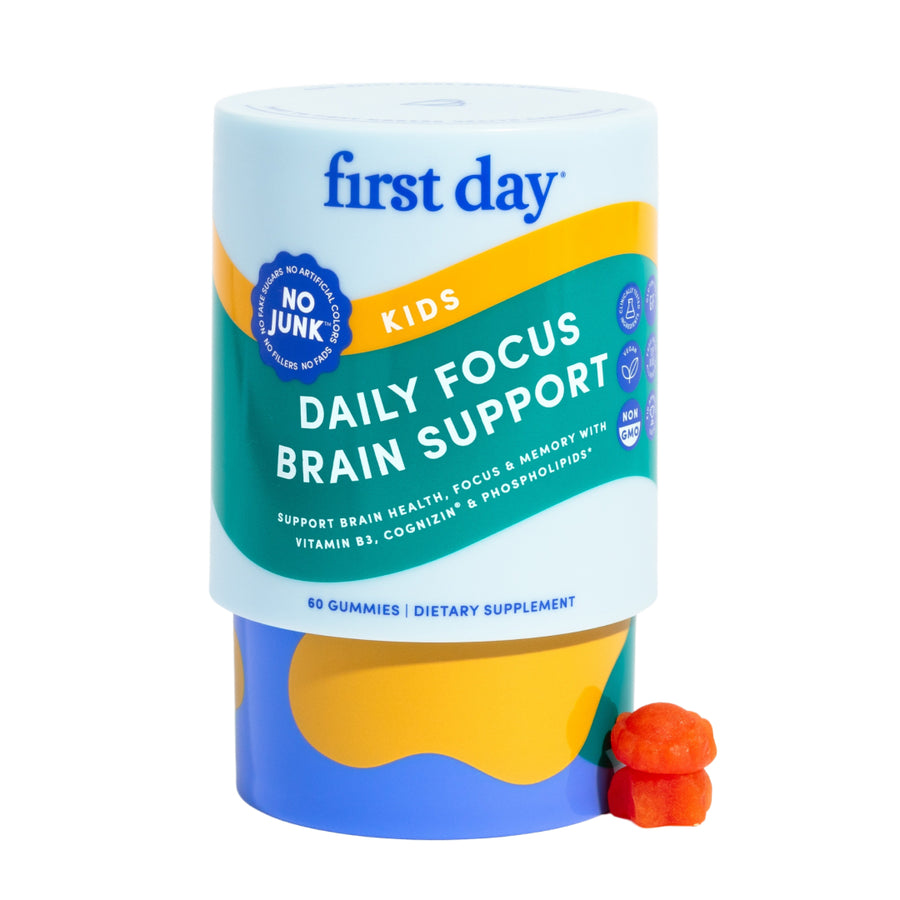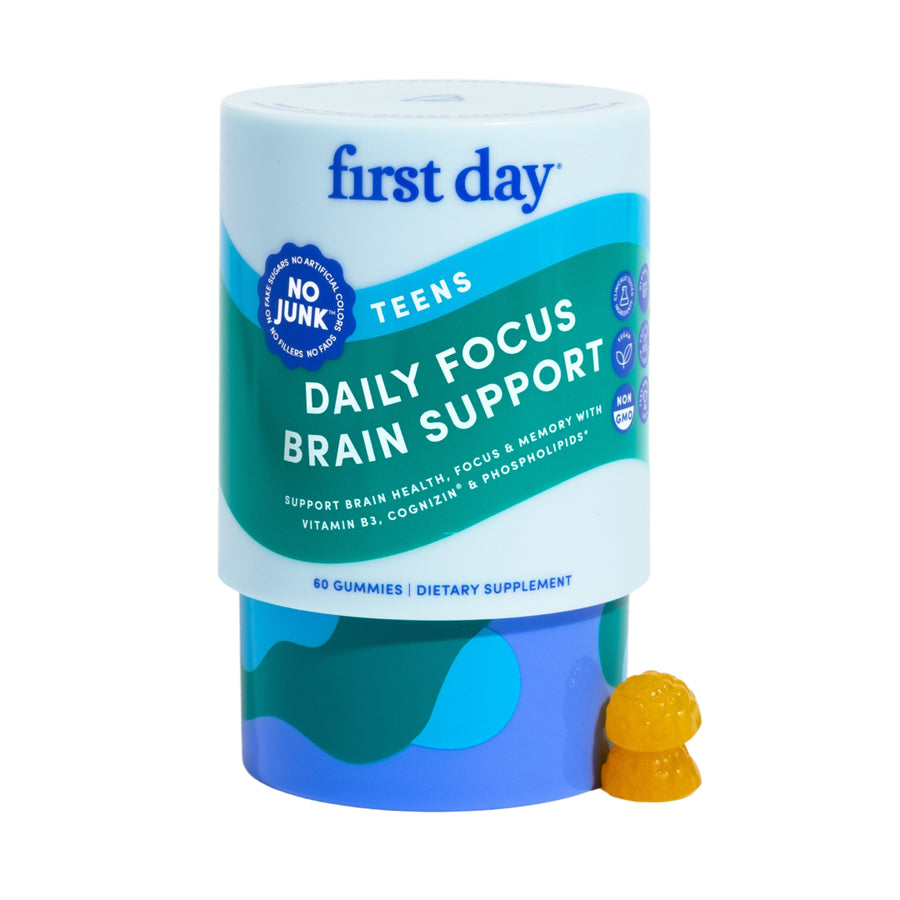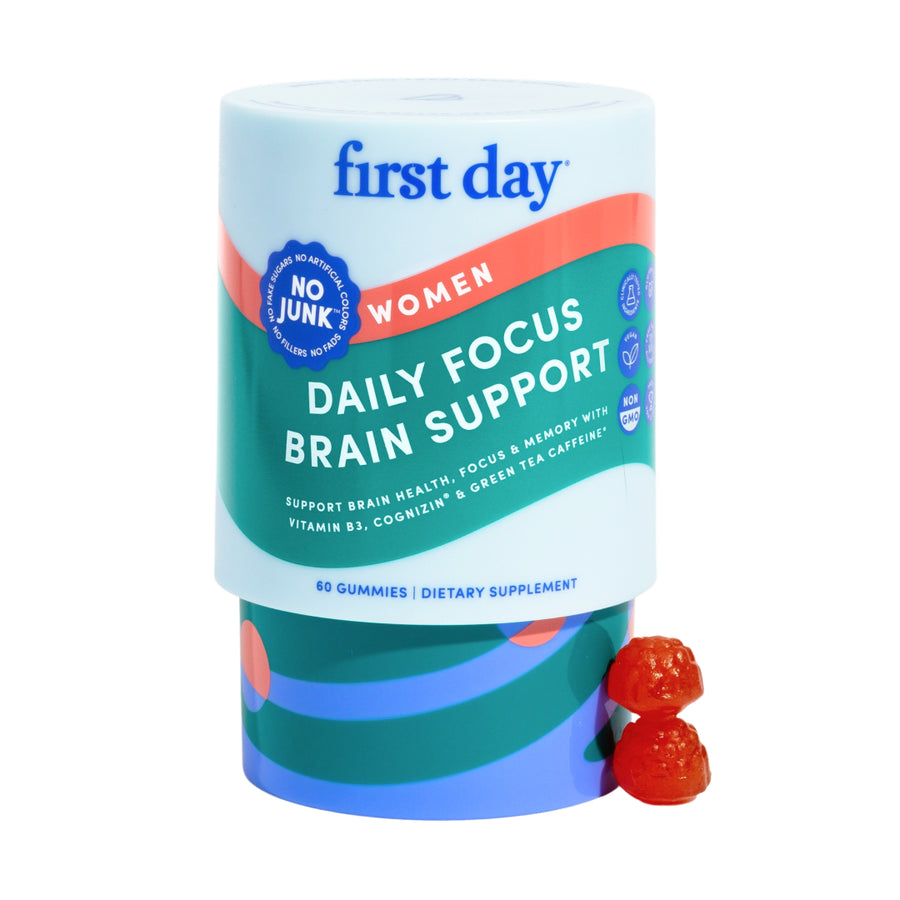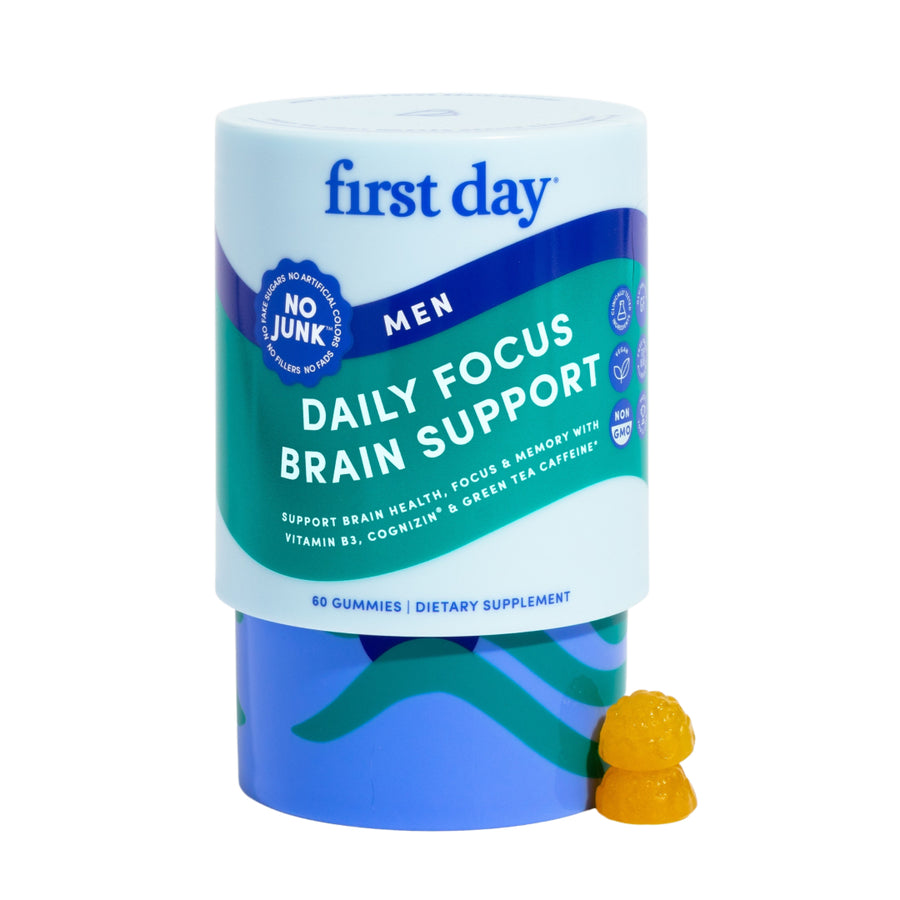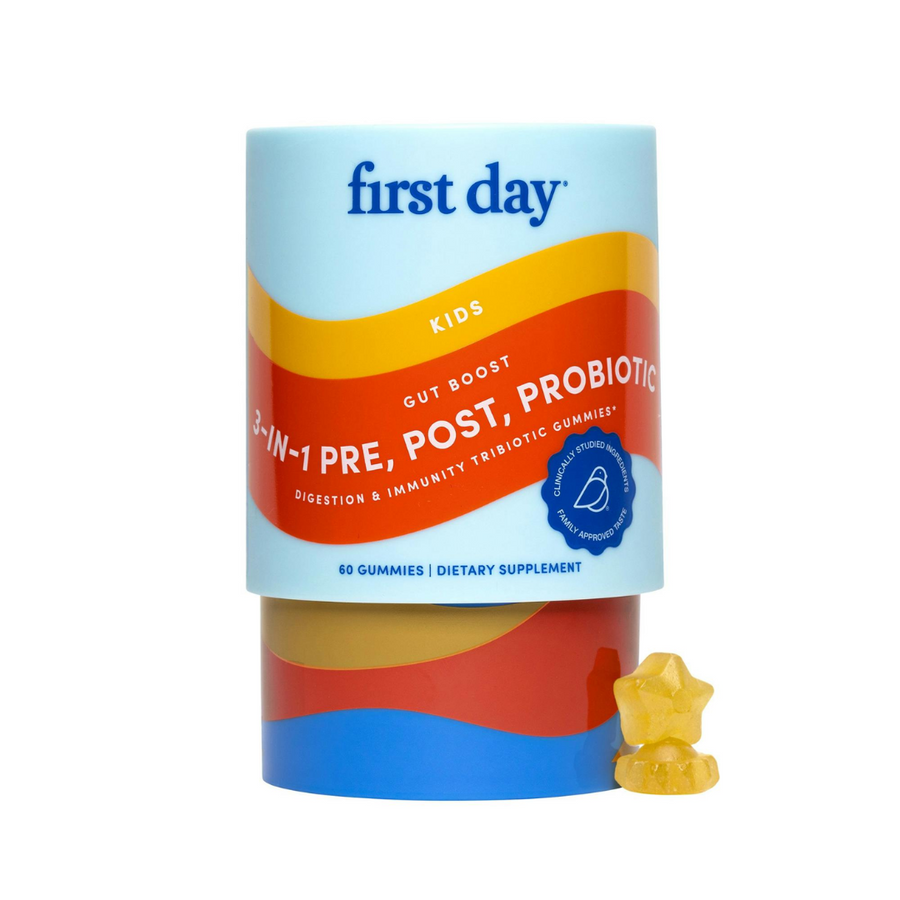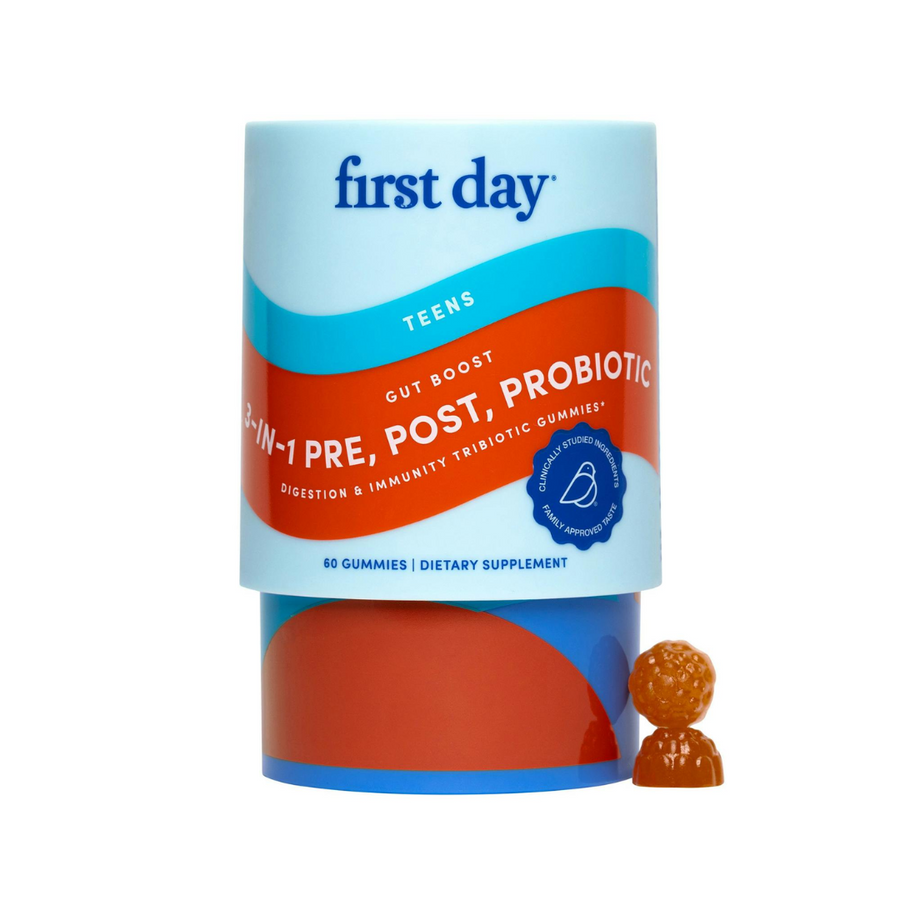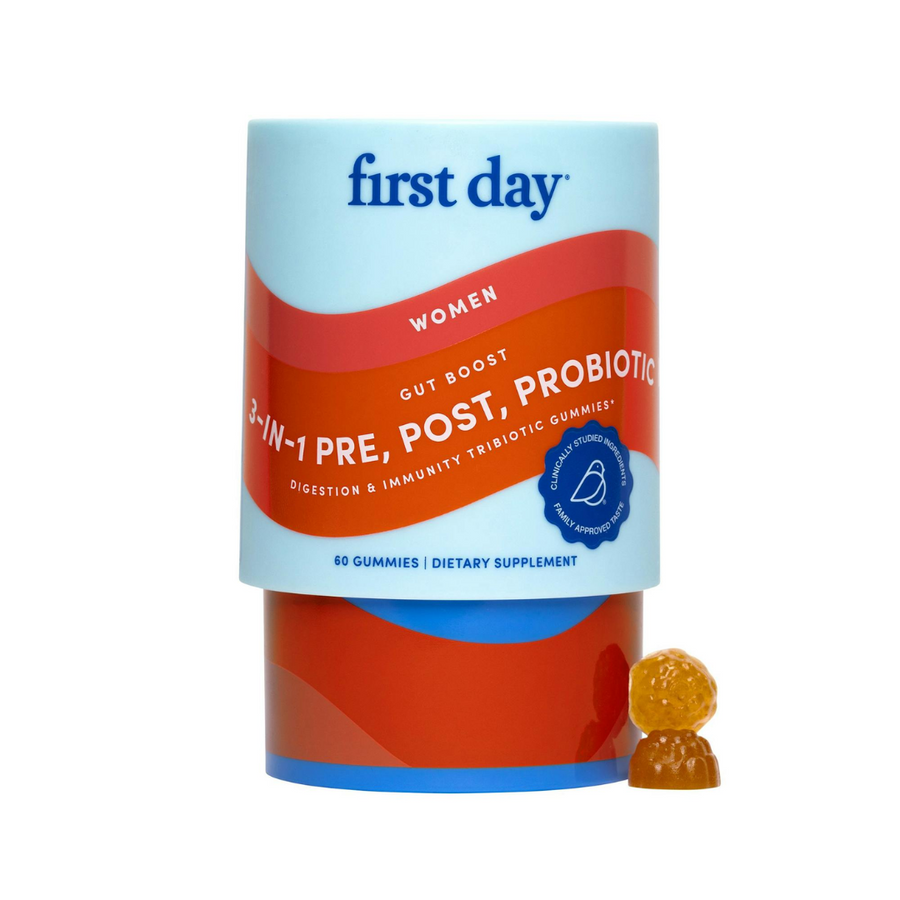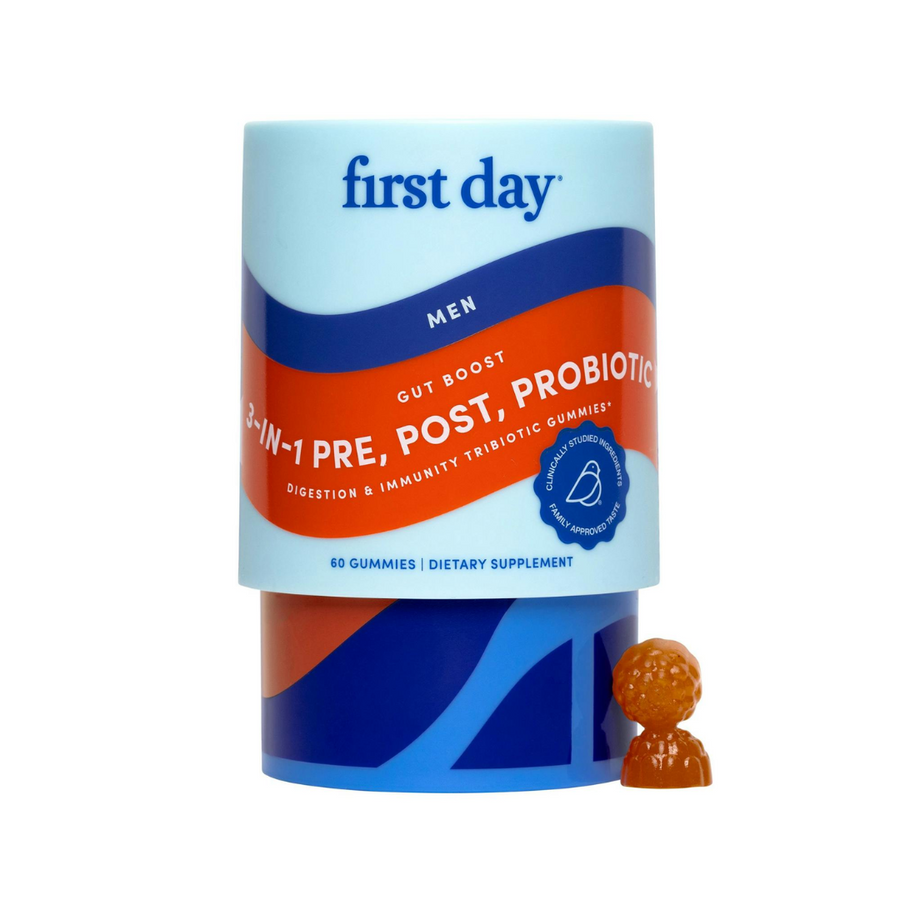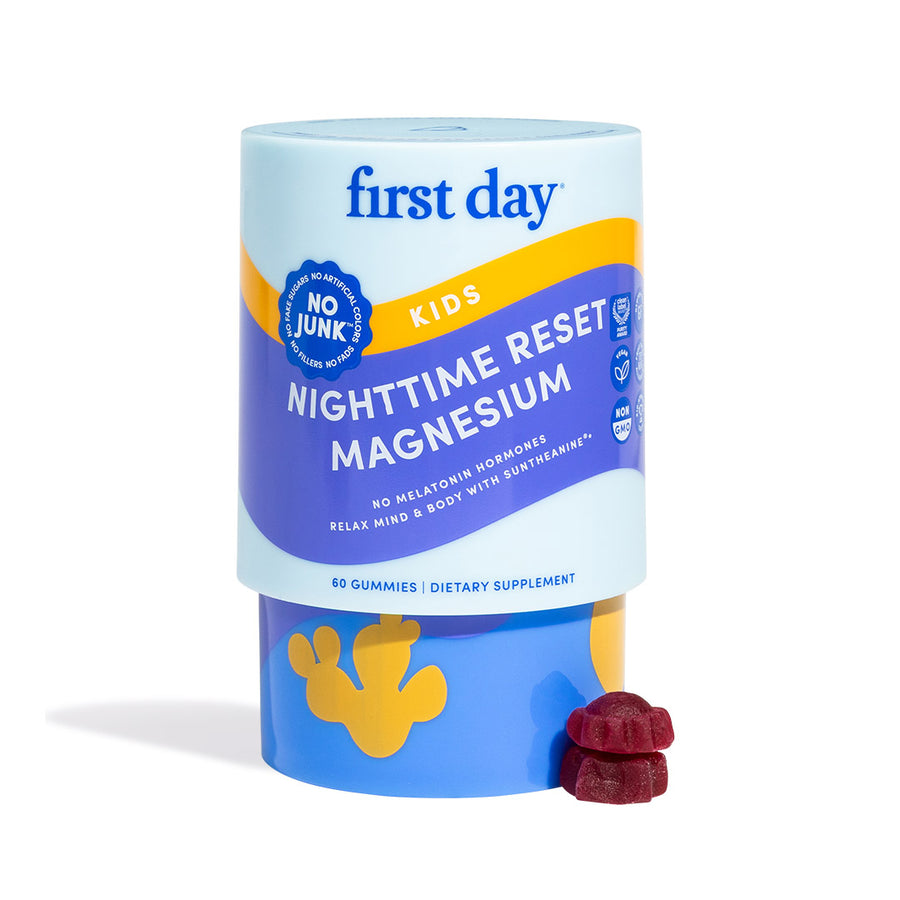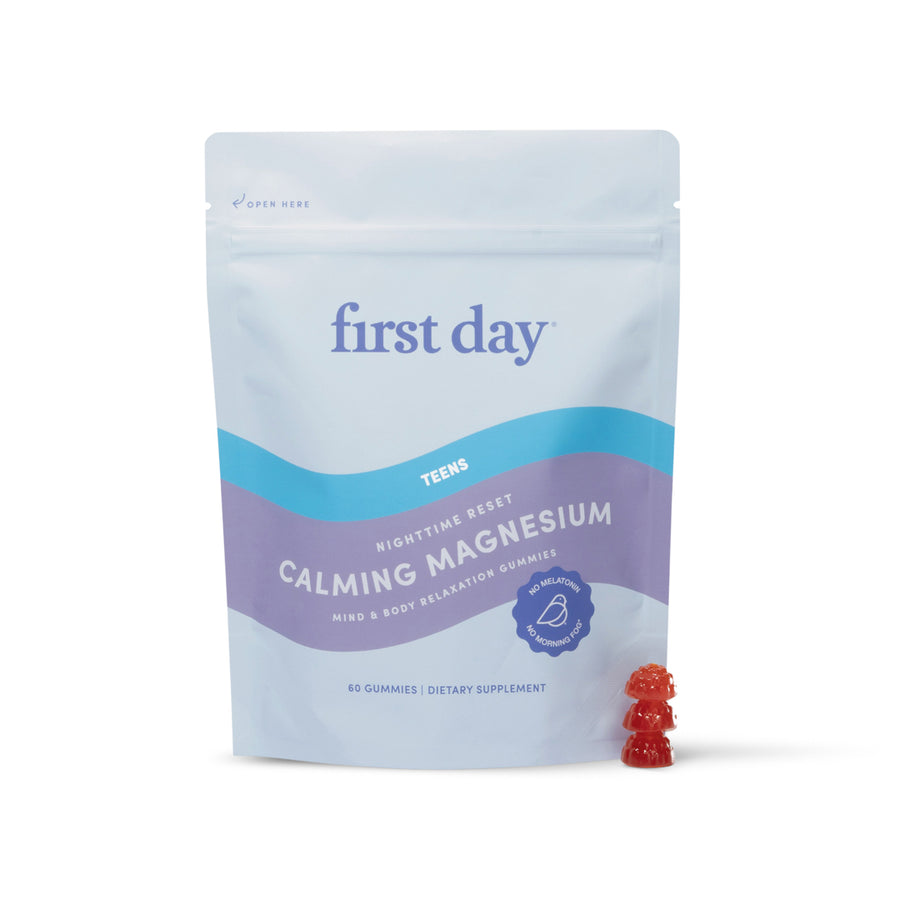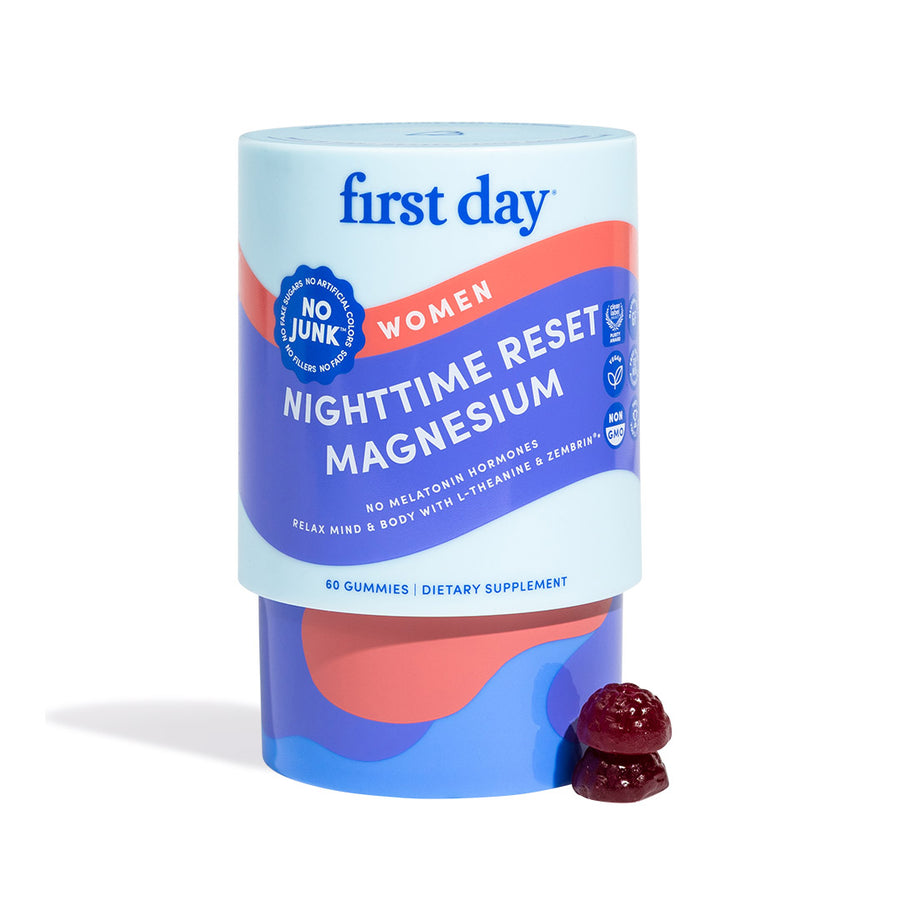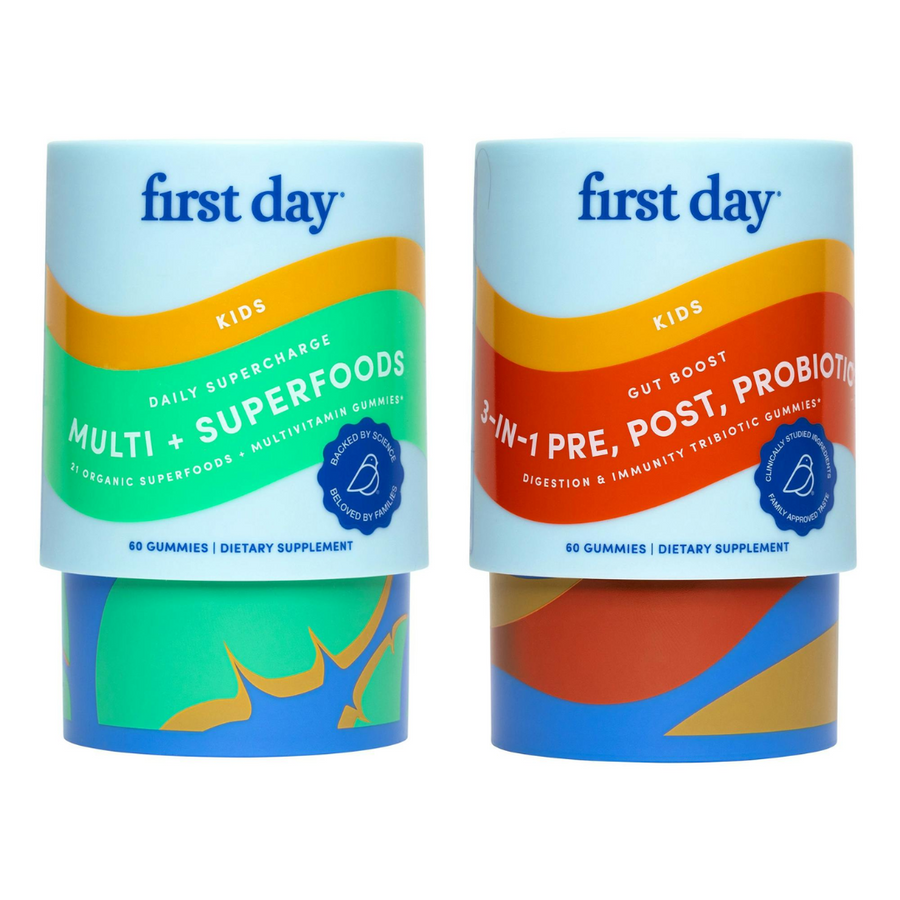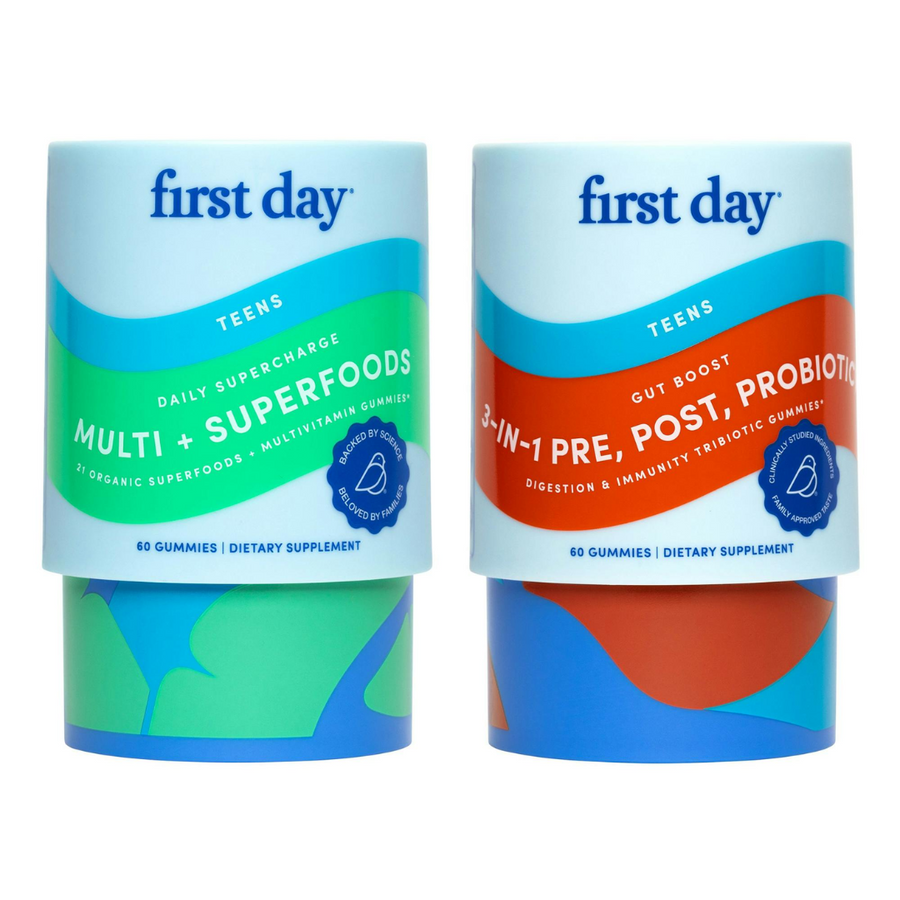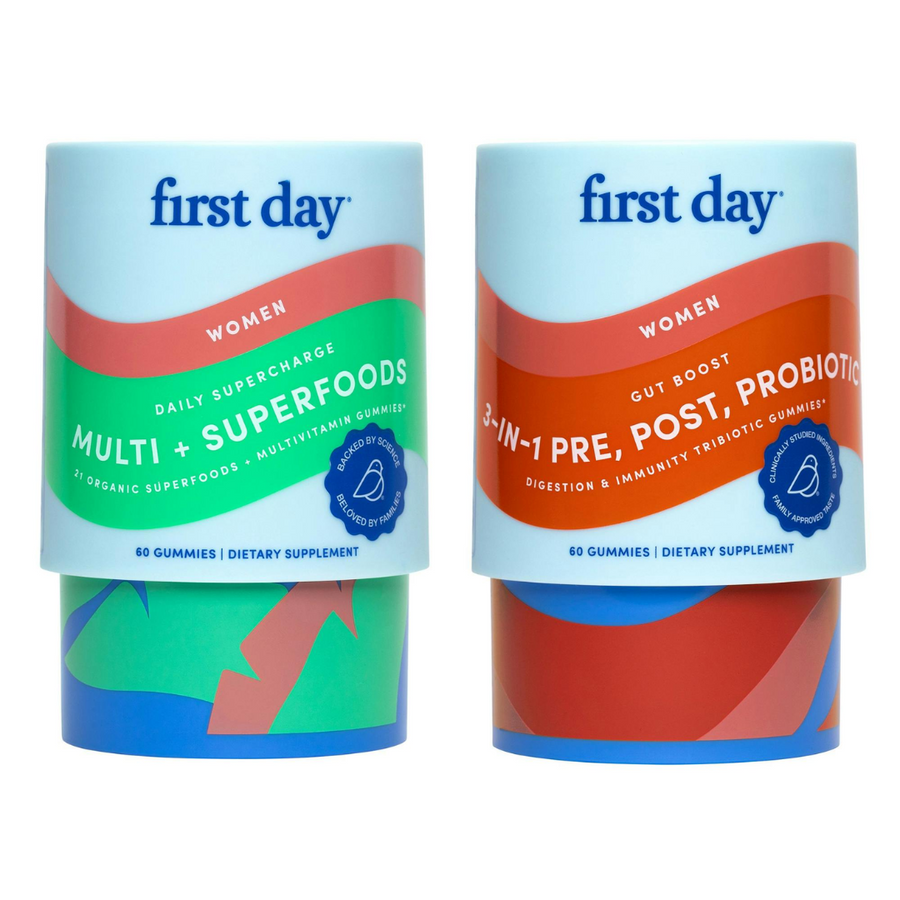Parents often wonder whether or not their kids can take vitamin B-12, as this essential nutrient plays an important role in their overall health and development. In this guide, we will explore what vitamin B-12 is, the benefits of taking it, how much kids need each day, potential risks associated with taking too much or too little, and tips for ensuring that your kids are getting enough of this important nutrient. Let's get started!

What is vitamin B-12?
Vitamin B-12, also known as cobalamin, is an essential nutrient that plays a key role in many different bodily processes. It helps to support the normal functioning of the brain and nervous system, promotes healthy red blood cell production, and supports the body's energy metabolism.
The body does not produce vitamin B-12 on its own, so it must be obtained through diet or supplementation. Good sources of vitamin B-12 include animal foods such as meat, poultry, fish, eggs, and dairy products. Some plant-based foods such as fortified cereals and nutritional yeast also contain vitamin B-12.
What are the benefits of taking vitamin B-12?
There are many different benefits associated with taking vitamin B-12. Some of the most important include:
1) Helps form red blood cells
One of the most important functions of vitamin B-12 is helping to form red blood cells. Red blood cells are responsible for carrying oxygen throughout the body, so it's essential that they are produced in healthy numbers. Vitamin B-12 supplements may help with increased energy levels, more efficient oxygen transport, and improved overall health in children.
Vitamin B12 is essential for the formation of red blood cells. If vitamin B12 levels are too low, red blood cell production is decreased, which may cause megaloblastic anemia. Vitamin B12 levels can be too low due to either inadequate intake or lack of intrinsic factor, a chemical in the intestine that allows the absorption of B12.
The blood cells are the main mechanism of oxygen transport in the body, so ensuring that your kids have healthy levels of vitamin B-12 is key to their overall health and well-being.
2) Supports normal brain function
Vitamin B-12 is also essential for optimal brain function. It helps to promote the production of neurotransmitters, which are responsible for carrying signals between nerve cells in the brain. Studies have shown that children who take vitamin B-12 have a better cognitive function, memory, and concentration.
According to a literature review published by Advances in Nutrition, there is a strong link between vitamin B-12 deficiency and neurodevelopmental disorders like attention deficit hyperactivity disorder (ADHD) in children. Therefore, it is important for parents to make sure their kids are getting enough vitamin B-12 in order to support healthy brain development and function.
The brain is a very energy-hungry organ, and vitamin B-12 helps to produce ATP, which is the energy currency of the cells. A lack of vitamin B-12 can therefore lead to fatigue, brain fog, and cognitive problems.
3) Might prevent dementia
The body needs vitamin B-12 to convert homocysteine into methionine. Methionine is important for cognitive function, and high homocysteine levels have been linked to an increased risk of dementia.
Vitamin B-12 supplements can lower homocysteine levels in children and adults with deficiencies. They might also decrease the risk of dementia in people who have high homocysteine levels but don't have a deficiency.
According to a study published in the American Medical Journal, adults over the age of 65 who took a daily vitamin B-12 supplement for 2 years saw a reduction in their homocysteine levels and an improvement in cognitive function.
4) May Support Bone Health and Prevent Osteoporosis
Maintaining healthy bones is another important benefit of taking vitamin B-12. This vitamin helps the body to absorb calcium, which is essential for strong and healthy bones. Vitamin B-12 deficiency has been linked to an increased risk of osteoporosis, a condition characterized by fragile and porous bones.
Vitamin B-12 supplements can help strengthen bones of both children and adults, which helps reduce the risk for osteoporosis later in life.
The benefits of taking this essential nutrient don't stop there. Vitamin b12 is important for maintaining healthy skin, hair, and nails. It may prevent or be used in conjunction with other modalities to treat a variety of conditions, including anemia, depression, and anxiety.
5) Reduce Risk of Macular Degeneration
Vitamin B-12 is also essential for healthy vision. It helps to maintain the normal structure and function of the retina, which is a thin layer of tissue that lines the inside of the eye. A vitamin B-12 deficiency can lead to early age-related macular degeneration (AMD), an eye condition that can cause blurred or fuzzy vision.
Fortunately, vitamin B-12 supplements can help to prevent or treat AMD. According to Dr. David J Harris, an ophthalmologist at the New York Eye and Ear Infirmary of Mount Sinai, “There is convincing evidence that vitamin B12 deficiency is a risk factor for the development of age-related macular degeneration.”
Children have a higher risk of developing AMD if they have a family history of the condition. If your child has a family member with AMD, it’s important to talk to their doctor about whether or not they should take a vitamin B-12 supplement.
6) Give You an Energy Boost
Vitamin B-12 is essential for the production of energy in the cells. This vitamin helps to convert carbohydrates into glucose, which is then used for energy. A lack of vitamin B-12 can lead to fatigue, brain fog, and feelings of exhaustion.
According to a study published in the Journal of Alternative and Complementary Medicine, taking a vitamin B-12 supplement can help to increase energy levels in people who are deficient in this nutrient. The study found that people who took a vitamin B-12 supplement for 8 weeks had more energy and felt less tired than those who didn’t take the supplement.
Children’s bodies are constantly growing and developing, so they need plenty of energy to fuel their activities. If your child is feeling tired all the time, it could be a sign that they’re not getting enough vitamin B-12.
7) Help With Digestion
Vitamin B-12 is required for the digestive system to operate properly. This vitamin helps to break down food and absorption of nutrients. A lack of vitamin B-12 can lead to digestive problems, such as constipation, diarrhea, and bloating.
This vitamin can help to treat or prevent digestive problems in children. For example, a study published in the British Journal of Nutrition found that children who received a vitamin B-12 supplement for 10 weeks had less constipation and fewer stomach aches than those who didn’t take the supplement.
If your child is experiencing digestive issues, it could be due to a deficiency in this essential nutrient. Talk to your doctor about whether a supplement may be right for your child.
8) Improve mood and symptoms of depression
Depression is a common mental disorder that can have a profound effect on every aspect of life. According to the World Health Organization, 350 million people worldwide suffer from depression. While medication and therapy are the most common treatments, some research suggests that vitamin B-12 may also be effective.
One study published in 2013 found that people with clinical depression showed significant improvement when taking B12 along with their antidepressants. The researchers concluded that this nutrient may have a "significant" role in the treatment of depression and other mood disorders.
Children's bodies also respond well to vitamin B-12 supplements. In particular, this nutrient can help improve mood and reduce symptoms of depression. For most kids, a daily dose of B-12 in the form of a multivitamin or other dietary supplement is a safe and effective way to get the recommended amount.

How much Vitamin B-12 do kids need?
Kids need different amounts of vitamin B-12 depending on their age and gender. According to the National Institutes of Health
-
Infants up to 6 months old need 0.4 micrograms per day
-
Kids between 7 and 12 months old need 0.5 micrograms per day
-
Children between the ages of 1 and 3 need 0.9 micrograms per day
-
For children from 4 to 8 the requirement is 1.2 micrograms per day
-
Aged 9 to 13 need 1.8 micrograms per day
-
And everyone aged 14 and older needs 2.4 micrograms per day.
The good news is that it's generally easy for kids to fulfill their daily vitamin B-12 requirements from a well-balanced diet. Some of the most common food sources of this nutrient include milk, eggs, salmon, beef, poultry, and fortified cereals. "If children are receiving a wide variety of foods from all foods groups, they are likely meeting their B12 needs," says Victoria Whittington, registered dietitian of Camelback Nutrition & Wellness.
Are there any risks associated with taking Vitamin B-12?
While taking vitamin B-12 is generally safe and well-tolerated, there may be some risks associated with certain supplements. "Tolerable upper limits have not been defined for B12, as there is an extremely low risk for toxicity," says Whittington. However, taking high doses of vitamin B-12 can interact with certain medications and cause serious side effects.
Some of the potential side effects associated with high doses of vitamin B-12 include:
1) Nausea and vomiting
The most common side effect of taking too much vitamin B-12 is nausea. This can be accompanied by vomiting, diarrhea, and abdominal pain. If you experience any of these symptoms after taking a supplement, stop taking it and speak to your doctor.
2) Increased risk of bleeding
Vitamin B-12 is involved in the production of red blood cells and the clotting of blood. Taking high doses of this nutrient can increase the risk of bleeding and bruising. If you have a history of bleeding disorders, speak to your doctor before taking any vitamin B-12 supplements.
3) Kidney damage
Vitamin B-12 is excreted in the urine, so taking large doses of this nutrient can put a strain on the kidneys for people with kidney disease or other kidney problems. Most healthy individuals with normal kidney function can handle the excretion of B12. If you have any concerns about your kidney function, speak to your doctor before taking vitamin B-12 supplements.
4) Headache
Headaches are another common side effect of taking too much vitamin B-12. Children are especially susceptible to this side effect. If you or your child experiences a headache after taking a vitamin B-12 supplement, stop taking it and speak to your doctor.
5) Dizziness
Another possible adverse effect of excessive vitamin B-12 consumption is dizziness. It is unclear why this occurs, but it may be related to the headaches that can also be caused by too much of this nutrient.
6) Blurred vision
High doses of vitamin B-12 can also cause blurred vision. This side effect is usually temporary and will resolve itself once the supplement is stopped. If this occurs after you take vitamin B-12, call 911 or your local emergency services immediately.
7) Allergic reactions
Allergic reactions to vitamin B-12 are rare but possible. Symptoms of an allergic reaction include hives, difficulty breathing, and swelling of the face, lips, or tongue. If any of these symptoms occur after you take vitamin B-12, call 911 or your local emergency services immediately. The best way to avoid an allergic reaction is to talk to your doctor before taking any supplements.
8) Rapid heartbeat
Vitamin B-12 can cause a racing heart, especially in youngsters. This is because of the way that it affects neurotransmitters in the brain. The good news is that this side effect is usually mild and will resolve itself once the b12 supplement is stopped.
How can parents ensure their kids are getting enough Vitamin B-12?
Parents can ensure their kids are getting enough vitamin B-12 by encouraging them to eat a healthy, well-balanced diet that includes plenty of food sources of this nutrient. Some of the best food sources of vitamin B-12 include:
1) Most dairy products (milk, yogurt, cheese, etc.)
The majority of dairy products are excellent sources of vitamin B-12. This includes milk, yogurt, cheese, and ice cream. Kids who consume dairy products on a regular basis are likely getting enough vitamin B-12. "Try adding yogurt with berries to your child's breakfast. You can also make a frozen fruit, milk, and yogurt," says Whittington.
2) Eggs
Eggs are another excellent source of vitamin B-12. They are also a good source of protein, which is essential for growth and development. Parents can hard-boil eggs and add them to their child's lunchbox or make a healthy omelet for breakfast.
3) Beef
The muscle tissue of most red meats contains high levels of vitamin B-12. Beef is an especially rich source, but other types of meat can also provide a good amount of this nutrient. Many kids love cheeseburgers, a food that will give them a hefty serving of B12 from the beef and cheese," suggests Whittington. Parents can encourage their kids to eat more beef or other sources of vitamin B-12, either as part of a meal or as a healthy snack.
4) Fish
Vitamin B-12 is present in abundance in fish liver and muscle, which are also good sources of the vitamin. Some of the best types of fish to eat include tuna, salmon, and herring. Fish is a healthy food for kids to eat in general, so it's a good idea to include it in their diet on a regular basis. If your child is hesitant to eat tuna, try putting it on their favorite crackers.
5) Fortified cereals
Many breakfast cereals are fortified with vitamin B-12. This means that they have been enriched with this nutrient to boost their nutritional value. Fortified cereals can be a good way for kids to get their daily dose of vitamin B-12, especially if they don't like to eat meat or fish.

Can kids take vitamin B-12 supplements?
Yes, kids can take vitamin B-12 supplements, but they need to be at a safe level. Most vitamin B12 supplements are not designed with children in mind, so they're not safe for kids. However, First Day vitamins are specifically formulated to ensure it is safe for kids. This is a multivitamin for kids that is made with organic ingredients and backed evidence-based research. It will help them have bright days. Plus, it's gelatin-free and has a great flavor that kids love.
Our top recommendation
If you're looking for a safe and effective way to ensure your child is getting enough vitamin B-12, we recommend trying Kids Daily Essential which contains this 75% of the daily value of this nutrient. These supplements are specially formulated for kids, making them a great choice for parents who want to provide their child an extra boost of nutrients in addition to their daily diet.
It's organic, non-GMO, and gluten-free, making it ideal for children with particular food sensitivities or allergies. Kids Daily Essential is made in the USA and offers a 100% satisfaction guarantee to ensure your child's health and wellbeing.
Order today to get started on the path to a healthy lifestyle for your child, and don't hesitate to contact us if you have any questions or concerns. We're here to help!
References
- https://ods.od.nih.gov/factsheets/VitaminB12-Consumer/
- https://pubmed.ncbi.nlm.nih.gov/15189115/
- https://pubmed.ncbi.nlm.nih.gov/31082033/
- https://pubmed.ncbi.nlm.nih.gov/24379897/
- https://academic.oup.com/advances/article/7/5/879/4616722
- https://www.mdpi.com/2072-6643/13/3/923
- https://www.ncbi.nlm.nih.gov/pmc/articles/PMC7077099/
- https://www.cambridge.org/core/journals/british-journal-of-nutrition
- https://academic.oup.com/ajcn/article/100/6/1578/4576655
- https://www.ncbi.nlm.nih.gov/pmc/articles/PMC4446754/
- https://www.who.int/news-room/fact-sheets/detail/depression
- https://www.ncbi.nlm.nih.gov/pmc/articles/PMC3856388/
- https://ods.od.nih.gov/factsheets/VitaminB12-HealthProfessional/
- https://www.mayoclinic.org/drugs-supplements-vitamin-b12/art-20363663
- https://perniciousanemia.org/b12/toxicity/
